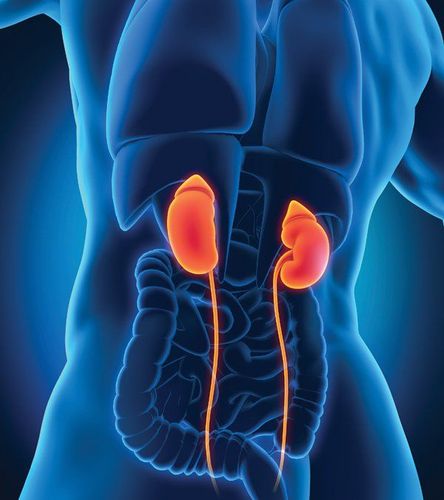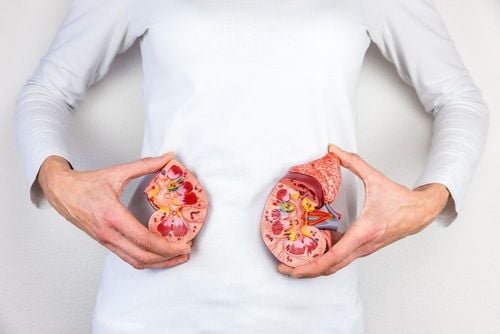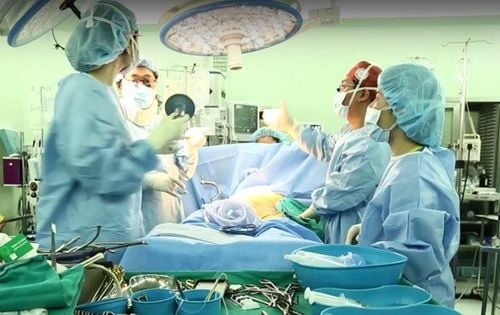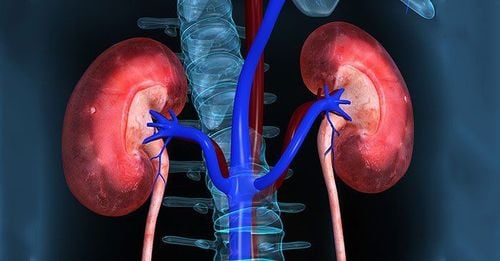This is an automatically translated article.
The article was professionally consulted by Specialist Doctor I Nguyen Hung - Endocrinologist - Department of Medical Examination & Internal Medicine - Vinmec Da Nang International General Hospital. The doctor has 36 years of working experience.Chronic renal failure will progress through 5 stages corresponding to a decrease in glomerular filtration rate. Accordingly, the treatment methods for chronic kidney failure also vary depending on the severity of the disease.
1. Progression of chronic kidney disease
Chronic kidney disease will progress to a slow decline in kidney function, over many years and not until the end stage. If a normal person does not have kidney disease, after the age of 30, every year physiologically, the glomerular filtration rate will decrease on average 1 ml/min/1.73m2.As for patients with chronic renal failure called rapid progression, each year chronic kidney failure will lose ≥ 5ml/min (according to KDIGO 2012), over time it will lead to end-stage chronic renal failure.
2. Factors affecting the progression of chronic kidney disease
2.1 The group of factors that cannot be changed Age: the elderly often progress faster than the young. Gender: Men develop kidney disease faster than women. Race: Black race with diabetes has 2-3 times higher risk of developing chronic kidney failure than white people. Genetic factors: the kidneys of low-birth-weight neonates (birth weight less than 2500g), preterm birth, the kidneys of children whose mothers have disease or use of nephrotoxic drugs during pregnancy are more susceptible to damage. compared to other normal children. The baseline renal function at the time of diagnosis was significantly reduced. 2.2 Group of modifiable risk factors Level of proteinuria (protein in the urine): the more protein in the urine, the faster the rate of kidney failure. Renal etiology: chronic renal failure due to diabetes, glomerular disease has a faster progression of renal failure than that of hypertension, tubular interstitial disease. The more the degree of interstitial tubular damage on the kidney biopsy, the faster the progression of kidney failure. Hyperlipidemia Smoking promotes fibrosis of the glomeruli, renal tubules and blood vessels.
3. How long to live with end stage chronic kidney disease?
Chronic kidney failure will progress through 5 stages. With stage 1 and stage 2 chronic kidney failure, if the disease is detected early, has the right treatment plan and a reasonable diet, living with the disease as well as completely treating the unpleasant symptoms of kidney failure can be difficult. disease is entirely possible.However, when chronic kidney disease has progressed to the end stage (chronic kidney failure stage 5), at which point the kidney function has completely decreased, the patient needs to undergo renal replacement therapy to sustainment.
Currently, there are 3 methods of treating end stage chronic kidney failure:
Hemodialysis Peritoneal dialysis (peritoneal dialysis) Kidney transplantation In which, hemodialysis (dialysis) and kidney transplant are 2 methods. most commonly applied.

In order to prolong the life of patients with chronic kidney failure, help the treatment be effective and reduce the number of dialysis sessions, the patient should pay attention to the correct adherence to the doctor's treatment regimen, the necessary diet. strict abstinence, keep the spirit comfortable, do gentle sports...
Please dial HOTLINE for more information or register for an appointment HERE. Download MyVinmec app to make appointments faster and to manage your bookings easily.














